Content from the Brookings Institution India Center is now archived. After seven years of an impactful partnership, as of September 11, 2020, Brookings India is now the Centre for Social and Economic Progress, an independent public policy institution based in India.
A review of Prime Minister Narendra Modi’s external affairs agenda during his first year in office tells us many things: his vision for making India work again, seizing the initiative in South Asia and the broader Asia-Pacific theater, and proclaiming India as an inevitable success story worth betting on. There is, of course, great pragmatism in such an approach as India faces the daunting task of finding viable employment for its 800 million citizens under the age of 35. But one also takes away a deeply-felt spiritual and philosophical world view that promotes India’s civilizational and cultural characteristics as unique contributions to the world. Modi speaks of India’s vibrant democracy, its “unity in diversity” ethos, not only as the indispensable ingredient for governing its remarkably complex society, but as the necessary path toward greater peace and coexistence in the world; a world which would allow his country to achieve sustainable levels of development and prosperity.
True to the Indian tradition of sharing but not boasting of its accomplishments as the world’s largest democracy, Modi has traveled around the region and the world praising countries like Mongolia, Mauritius, and South Korea for their transitions from conflict toward democratic stability. He was the first sitting Indian premier in 33 years to visit Fiji in November 2014, shortly after elections restored democracy to the island and led to its re-admittance to the Commonwealth of Nations. There he promised to expand defense and security cooperation, increase scholarships, and finance a co-generated power plant and upgrades to the sugar industry. Upon becoming the first prime minister to visit neighboring Nepal in 17 years also in November 2014, he announced a $1 billion credit for infrastructure development and energy projects and later rushed disaster relief to victims of the devastating earthquake in April 2015. On India’s independence day, Modi praised Nepalese youth for dropping their weapons in favor of ploughs and schoolbooks as they await a new constitution that Indian experts have helped draft. In Myanmar, Modi made a point of visiting democracy icon and opposition leader Aung San Suu Kyi, who impressed upon him the link between democracy and stability, citing India as an example of a country with a diverse, pluralistic population that can both develop and govern itself democratically.
Download the Complete Briefing Book
The encouraging embrace of democratizers in the region is counterbalanced by the chilly unease that continues to overshadow relations with China and its closest ally in the region, Pakistan, which continues to struggle with military domination of politics. Similarly, Modi turned a cold shoulder toward the Maldives after its increasingly authoritarian government chose to prosecute a former president on questionable charges, leading Modi to cancel a scheduled trip to the country in February 2015. After the previous Indian government declined to attend the Commonwealth Summit in Sri Lanka while it was governed by the autocratic president Mahinda Rajapaksa, Modi traveled to Colombo after Rajapaksa’s surprising electoral defeat. There he told the parliament about India’s success with “cooperative federalism” as a more positive antidote to the island’s longstanding separatist conflict while stressing that the unity and integrity of Sri Lanka are “paramount.”
These examples suggest a subtle shift toward greater activism in India’s generally passive if genuine support for pluralistic democratic stability in its foreign policy. Its traditional style of democracy promotion emphasizes leading by example, not preaching to others; listening to local demands and waiting to be asked for assistance; avoiding the appearance of bullying its smaller neighbors to democratize; and focusing on technical assistance and institution building while eschewing more overtly political forms of involvement. Modi’s “neighborhood first” policy, including the interest in greater integration, trade and transport links, makes it more likely that India will use its expanding influence to support stronger institutions of democratic governance and rule of law and more overtly favor countries on the democratic path.
Modi brings to these subjects his own unique voice and experience. As a child of poverty who once served tea in railway coaches, Modi knows firsthand that democratic systems offer greater opportunities for mobility and prosperity. In this regard, India offers a particularly strong contrast to neighboring China, which, for all its economic and social progress, remains grossly deficient in terms of political rights and democratic values.
What sets Modi apart from his predecessors is his mission to help spread the experience of a more inclusive and democratic India not only to his fellow Indians, but also to the wider world. As a devout Hindu, Modi is not shy about preaching the virtues of what he considers not a religion but a way of life that encompasses all societies, a philosophy that teaches, “all should be happy, all should be healthy, all should live life to the fullest.”[i] As India succeeds at home, “we increase our ability to help our friends,” he told the Mongolian parliament this month. “This is the urge of the land of Buddha and Gandhi. This is the instinct born from our ancient belief in the world as one family.”[ii] He proceeded to connect Buddha’s message of kindness and compassion for all to the foundational principles of democracy and human rights as an ancient common heritage that will unite Asia around peace and cooperation. A year from now we will know better whether the prime minister is able to translate these hopeful and ambitious words into concrete action in the increasingly chaotic world of conflict and competition.
—
[i] Prime Minister’s interview to the TIME Magazine, May 8, 2015, Ministry of External Affairs Media Center, http://www.mea.gov.in/interviews.htm?dtl/25211/Prime+Ministers+interview+to+the+TIME+Magazine
[ii] Remarks by Prime Minister in the Mongolian Parliament, May 17, 2015, Ministry of External Affairs, http://www.mea.gov.in/outoging-visit-detail.htm?25254/Remarks+by+Prime+Minister+in+the+Mongolian+ParliamentMay+17+2015
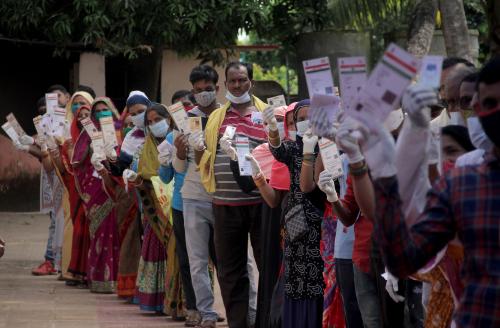
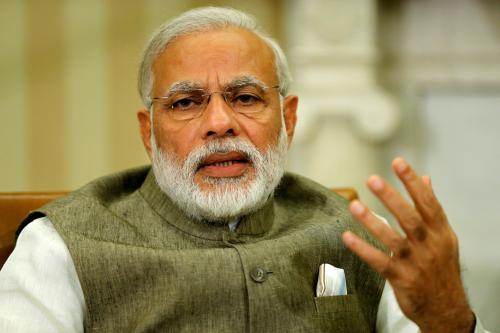
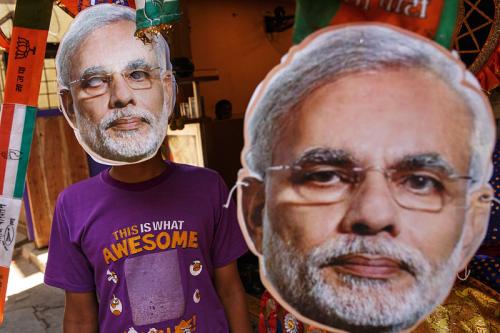
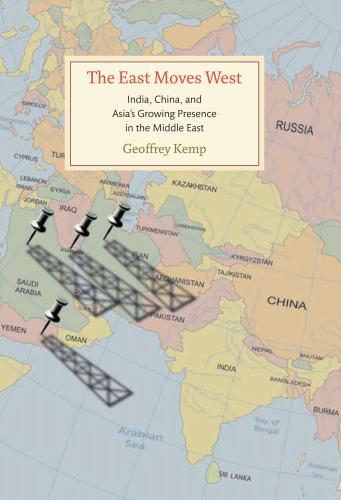
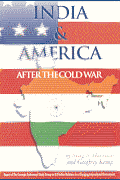
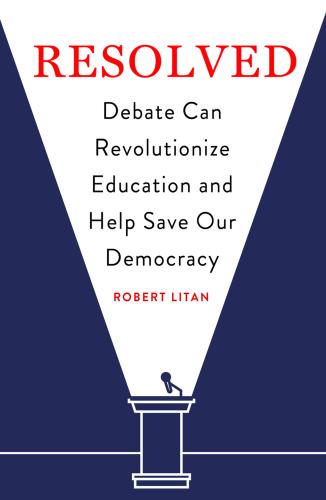




Commentary
Op-edModi’s foreign policy strikes a spiritual chord when it comes to democracy
IndiaGov@365
May 28, 2015